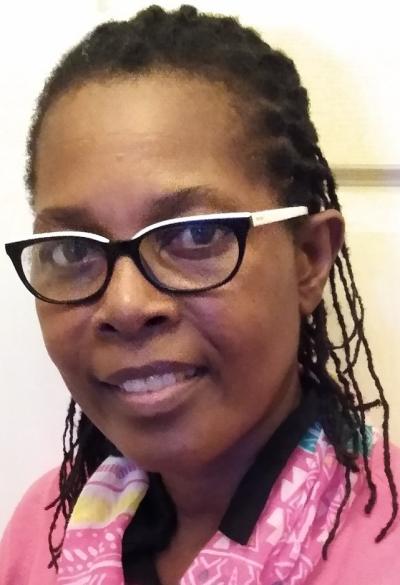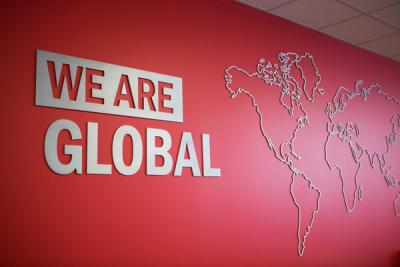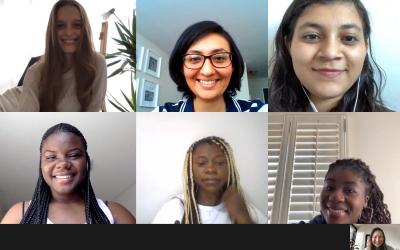Valrie McKenzie was supposed to travel to Canada from Humber College’s partner, the University of Technology in Jamaica, to attend Humber’s International Teaching Effectiveness Certificate program for the Summer 2020 semester.
She deferred her program acceptance due to the COVID-19 pandemic and travel restrictions, but she continued to check her email for updates from the college.
She received an email about a new opportunity - the Beyond COVID-19: Global Systems Gap Challenge, organized by Humber College’s International department.
The challenge brought together students from different backgrounds and programs to identify systems gaps related to COVID-19.
 Participants also had access to weekly professional development opportunities focused on applied research skills, community development and sustainability, and articulating skills through the Humber Learning Outcomes framework.
Participants also had access to weekly professional development opportunities focused on applied research skills, community development and sustainability, and articulating skills through the Humber Learning Outcomes framework.
“I’d get the chance to network, learn more about Humber and gain valuable research experience," said McKenzie.
Humber found a new way to offer innovative experiential learning opportunities to students even during a global pandemic.
“Humber has a deep commitment to global learning and engagement,” said Rebecca Fitzgerald, Associate Director of International Mobility and Strategic Partnerships.
“The skills, values and behaviors that prepare students to be engaged citizens and collaborative problem solvers in diverse, interconnected communities and the global workforce remain of critical importance.”
The five-week challenge brought together 378 participants who joined virtually from 26 countries across six continents, most of whom were Humber students from different academic programs. Eighty-six participants were students from global academic partners like McKenzie, or prospective Humber College students.
For the majority of students, the challenge was a way to satisfy work placement requirements or receive co-curricular record recognition.
"We listened to each other, we leaned on each other"
Participants were divided into 63 teams and guided through weekly challenges by 125 Humber College faculty and staff and industry partners who volunteered as mentors. They identified systemic issues in business, education, social innovation and health and wellness.
The goal of the challenge is not to solve systemic global issues, but rather to identify systemic gaps and possible paths to a future solution. At the end of the challenge, each team submitted their Global Systems Gap pitches to a panel of community and industry experts who determined the top eight teams to recognize with awards.
 Valrie McKenzie was on one of those winning teams. Her partners were all located in Canada but had different countries of origin or citizenship. Their overarching topic was education, but they soon narrowed focus to literacy skill gaps in a low-income neighbourhoods in Toronto.
Valrie McKenzie was on one of those winning teams. Her partners were all located in Canada but had different countries of origin or citizenship. Their overarching topic was education, but they soon narrowed focus to literacy skill gaps in a low-income neighbourhoods in Toronto.
“One might have wondered how online learning would work with so many people of different backgrounds, but it worked out,” said McKenzie
“We listened to each other, we leaned on each other.”
Their research led them to examine the literacy centre system during COVID-19.
“COVID closed the centres, which were fantastic, but people weren’t getting access to the program. We need a solution for that,” she said
McKenzie says that the experience introduced her to Canadian education culture, which was helpful because she is an instructor at a college in Jamaica, teaching professionalism, ethics, and dentistry classes. She plans to use some of the digital teaching and research techniques in her crriculum.
Leading tomorrow’s change makers
Volunteer mentor Michael Luckett - A Humber almunus and instructor - is the creative director and producer at Helium Ninja, a marketing company. 
“In running my own business and working in communications, I know it can be difficult to coordinate and work in teams to get something accomplished. I thought I could assist in taking down some communication barriers,” he said.
He encouraged his team to discuss and engage with each other frequently.
“I wanted to see more interaction, more Zoom calls, more get-togethers and making time to communicate in real-time to stay cohesive.”
According to challenge organizers, virtual collaboration skills are in high demand in the global economy and workforce.
One of Luckett’s major recommendations to his team was that they use a shared calendar in the future to streamline the communication and planning process.
“The simpler we can get things, the better,” he said.
In addition to presenting their findings as a team, individual participants were also required to write a 500-word reflection about what it was like to compete in the challenge with a globally diverse team in a virtual environment, and a second reflection about which of the Humber Learning Outcomes mindsets and skills they felt they developed by completing the challenge.
“I’m proud of our research. I feel like I learned just as much as I would have in summer school – and more. I got to work with some great people.” said McKenzie.